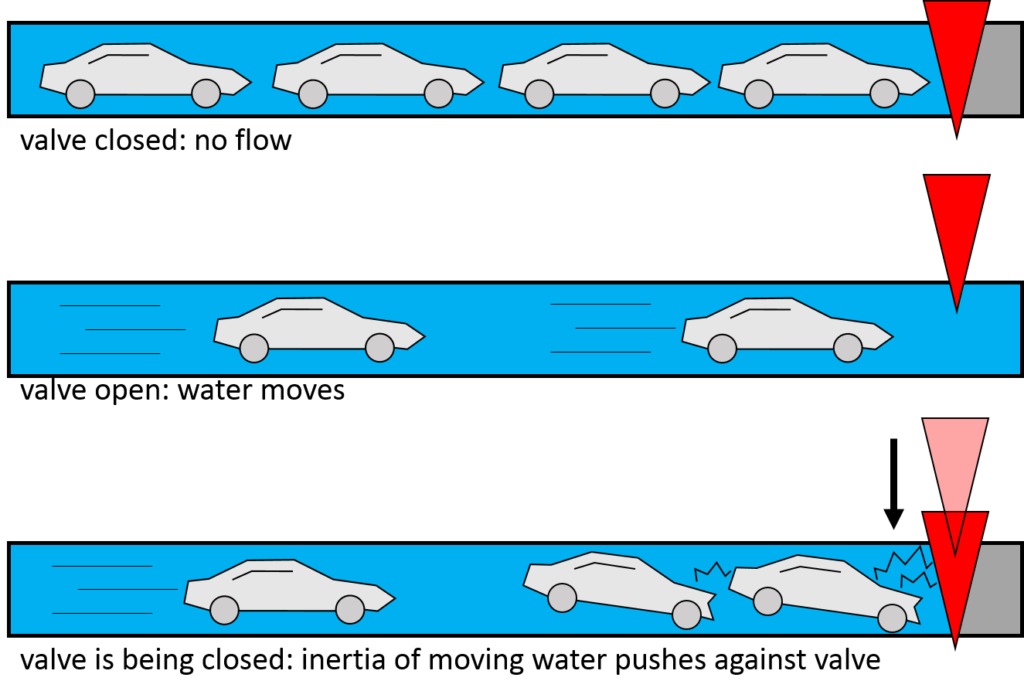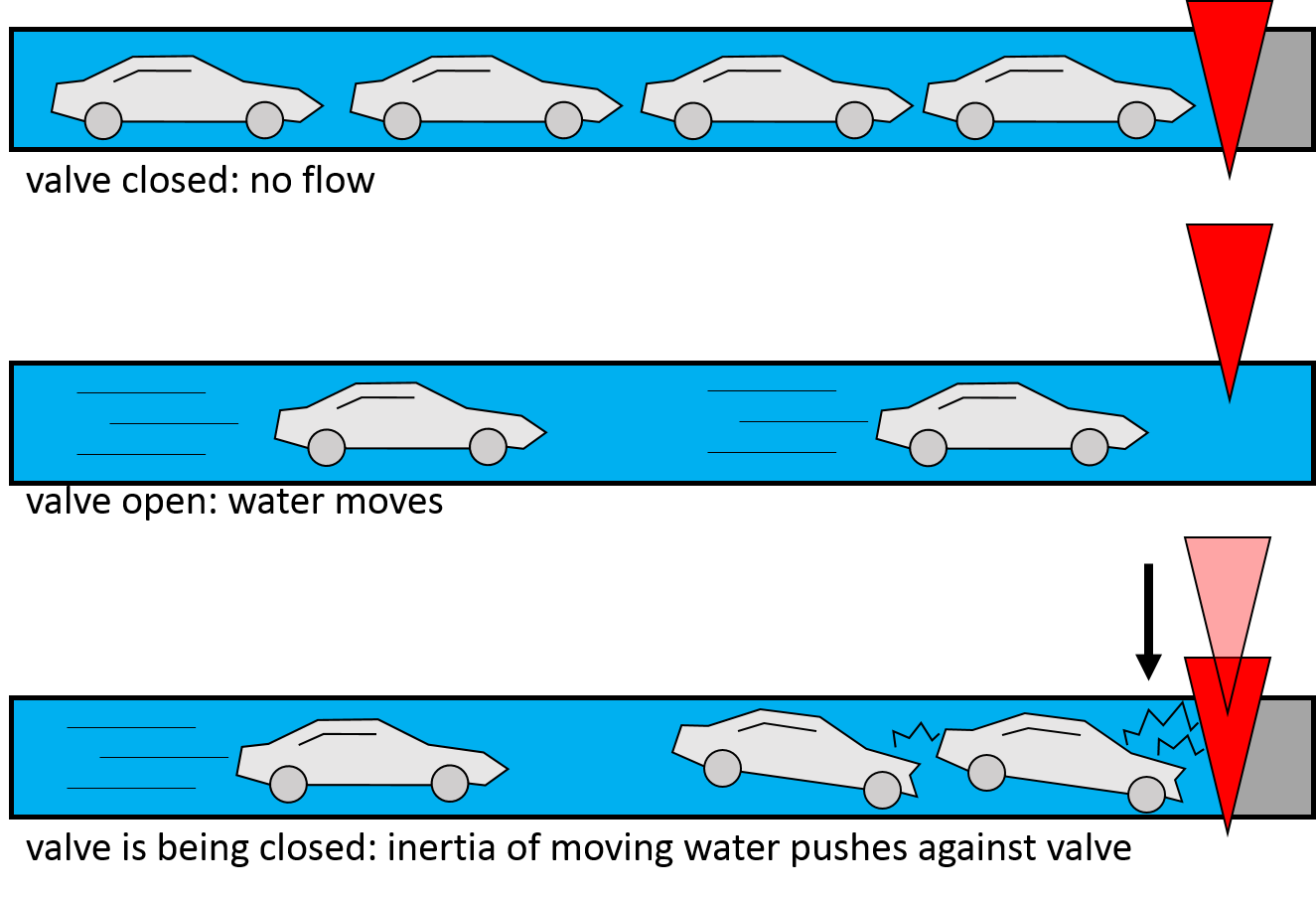2 You might have encountered the phenomenon: You have a faucet running, for instance, while filling your bathtub, and quite a bit of water is flowing out. Then you want to stop the flow and quickly turn the valve to block the water. Suddenly, in the very moment you close the valve, you hear a banging sound in the walls around you. Sometimes it is rather quiet, sometimes it can be scarily loud. But what is actually causing the sounds and is it something you should worry about?
It turns out that the answer to this question is one of the most relevant design considerations for civil engineering.1,2 It all roots in a fundamental property of liquids: not being compressible. You may have noticed that a balloon filled with air can be compressed quite a bit while one filled with water only changes shape and cannot be made smaller. This very principle is the core of hydraulics, i.e. using the volume of a liquid like water or oil to transfer force in a system.
Maybe you are wondering now how this affects your pipes, considering that the volume of the pipe always stays the same. Nobody (hopefully) compresses the pipes in your walls. There is, however, also another important aspect to a liquid: its momentum. Once a liquid starts to move through a pipe it builds momentum just like a car or a train build momentum when they move (see Fig. 1). As long as the flow can continue undisturbed no ill effects occur and similarly, nothing happens if the flow is slowly brought to a halt by gradually closing the valve. To stay in our analogy, this would correspond to a train of cars slowing down when a road gradually narrows from two lanes to one and eventually to a road blockage.

The interesting effects happen when we force the flow of liquid to stop suddenly with a valve, essentially causing an accident on our road that causes all the cars to slam into the blockage. In this case, a rather large amount of inertia must be dissipated into the valve and the walls of the pipe causing a large pressure spike. If the pipe can move like a free garden hose (e.g. old pipes that are not properly fixed) this can lead to a sudden jerk and might loosen connections. The story is not so easy, though, for pipes that are fixed in your walls or buried beneath streets: those usually cannot move. As a result, the full force of the pressure acts on the valve and the walls of the pipe – causing the banging sound in your bathroom. The effect is officially called ‘water hammer’.3
But before you start wondering now if your pipes will one day burst and start flooding your apartment: civil engineering has developed a series of safety measured to prevent this from happening in our daily life. To understand how, it is important to know that the pressure spike caused by the sudden restriction in water flow is directly related to the flow rate. In our car analogy this would correspond to the relation between the number of lanes on the road and the number of cars that have to pass through a road segment at any given time. Together this dictates the speed the cars are traveling with and their cumulative inertia. In simple words: fast-moving cars on a narrow street do have a much harder time to slow down than a larger number of slower cars. Therefore, many supply pipes have large diameters, causing the water to flow slowly and thus avoiding the pressure spikes if the flow is restricted by one of the recipients. Additionally, air or spring-loaded pressure relief valves can engage to dissipate a dangerous spike without causing damage and water suppliers usually have build-in safety measures to make sure pumps are not starting up too quickly.
All in all, you usually do not have to worry about a slight banging sound caused by quickly closing a faucet, even though you should avoid it if possible. However, if it is loud or suddenly starts to appear you should be careful to reduce the wear and tear of your pipes or directly ask a pumper. A neat little starting point is Ref. [1]. Anyway, next time you use your sink or shower, think maybe of all the civil engineering that is necessary to let you shower or take a bath anytime at will.
— Kai Litzius
Disclaimer: This article is meant to give an introduction into the physics behind the water hammer. In doubt always ask a specialist if your piping needs to be repaired.
Read more:
| [1] | https://home.howstuffworks.com/home-improvement/plumbing/how-to-fix-pipes5.htm |
| [2] | https://www.youtube.com/watch?v=xoLmVFAFjn4 |
| [3] | A similar effect occurs with steam, the so-called ‘steam hammer’, which is an exceptionally dangerous phenomenon that can lead to steam pipes exploding once too much steam condenses and the condensate gets accelerated through the pipe. See also here for a great explanation: https://www.youtube.com/watch?v=JyvoN1hIqRo |
